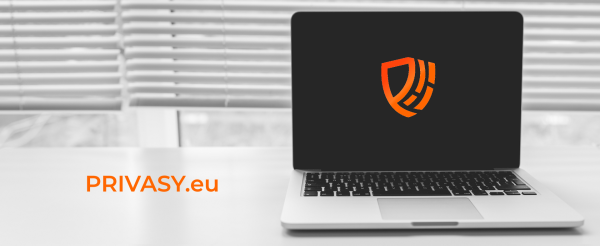Employee Data Under GDPR
Employee data is a critical category under the General Data Protection Regulation (GDPR), impacting how organizations in the EU collect, process, and retain personal information about their staff. Unlike consumer data, employee data often includes more sensitive categories like health records, disciplinary actions, and identification documents, making it especially important to handle with care and legal compliance.
Responsible data use isn’t just about avoiding fines—it builds trust and supports a culture of transparency in the workplace. Yet, many companies still struggle with implementing robust systems to manage this. One of the underlying complexities is the privacy paradox: employees claim to value privacy, yet they often share sensitive personal data with limited awareness of their rights or control over its use. For those preparing for the CIPP/E certification, understanding this paradox and GDPR's requirements for employee data is essential, as it reflects a practical and ethical dilemma that surfaces often in real-world scenarios.
The Privacy Paradox in the Workplace
The privacy paradox is a term used to describe the conflict between individuals’ expressed concerns about privacy and their behavior, which often includes willingly disclosing personal data without fully understanding the risks. In the workplace, this paradox is intensified by a power imbalance—employees typically trust their employer but may not realize the extent to which their data is being monitored or analyzed.
This disconnect can have serious implications. Employers collect data for performance evaluations, payroll, benefits, and compliance, but without clear communication, employees may feel their privacy is being eroded. What complicates matters further is that many employees are unaware of their rights under GDPR, such as the right to access or correct their data. A study on the privacy paradox in corporate environments points out how this lack of awareness often stems from limited transparency and cultural norms that discourage questioning data practices.
Organizations need to strike a balance between operational efficiency and ethical data handling to maintain employee trust and meet regulatory expectations.
Key GDPR Requirements for Employee Data
The GDPR sets out a detailed framework for the lawful processing of personal data, which applies comprehensively to the employment context. Employers must identify a lawful basis for collecting and using employee data—typically relying on legal obligation, contractual necessity, or legitimate interest. Consent, while a possible basis, is often problematic in employment due to the imbalance of power, which may render consent less than freely given.
Transparency is both a legal and ethical requirement. Employers are obligated to provide clear, accessible information on what data is being collected, why it is needed, how long it will be retained, and who will have access to it. Under GDPR, employees also enjoy several data subject rights: access to their own data, correction of inaccuracies, the right to erasure in certain circumstances, and the right to data portability and objection.
When it comes to sensitive data—such as information on health, union membership, or ethnicity—stricter rules apply. This data can only be processed under specific legal grounds and must be protected with additional security measures to ensure confidentiality and compliance.
Practical Challenges for EU Companies
While GDPR compliance is essential, executing it in everyday HR operations presents many challenges. One such challenge is data mapping—identifying what personal data is collected, how it flows through the organization, and where it is stored. Without this clarity, companies risk holding unnecessary or outdated information that could expose them to compliance violations.
Managing data subject access requests (DSARs) is another major concern. Companies must respond within strict timeframes and often lack the infrastructure to retrieve data efficiently. This becomes particularly complex in international or distributed teams.
Security is also a critical issue. Employers must deploy encryption, multi-factor authentication, and internal access controls to safeguard employee data. Meanwhile, clear retention and deletion policies help reduce the volume of stored data and lower risk exposure. Proactive planning and cross-functional collaboration are key to maintaining compliance.
Best Practices for Responsible Use of Employee Data
Complying with GDPR means more than just following rules—it requires a shift toward responsible, ethical data practices. One foundational step is data minimization: only collecting what is necessary for clearly defined purposes. This practice simplifies compliance and reduces legal exposure.
Limiting internal access to personal data is equally important. Only those with a direct operational need should have access to sensitive information. Establishing and maintaining these boundaries reduces the chance of accidental misuse or breaches. Equally, companies should invest in regular training and awareness programs to ensure employees understand their roles and responsibilities in data protection.
Retention and deletion policies must be documented and enforced. Automating these processes not only improves efficiency but also aligns with GDPR’s requirement to store personal data no longer than necessary. Transparency in all these practices supports accountability and improves employee trust.
The Role of Organizational Culture and Ethics
Creating a workplace culture that values privacy is essential to sustainable compliance. It requires more than policies—it calls for ethical leadership, transparency, and open communication. Embedding data ethics into core values helps prevent misuse and fosters long-term loyalty.
According to Personio’s HR guidance, companies that align operational practices with privacy values are better positioned to manage risks and build trust across all levels of the organization.
The Paradox for Sustainable Compliance
The privacy paradox challenges organizations to reconcile operational needs with employee privacy expectations. Companies that prioritize transparency, limit data collection, and embed ethical practices into their culture are more likely to maintain compliance and build strong employee relationships.
Whether you're leading an HR department or preparing for the CIPP/E exam with expert materials, mastering the nuances of employee data management is a step toward sustainable, responsible business practice. For a practical GDPR checklist from recruitment to termination, GoGlobal’s workplace data protection tips offer a comprehensive guide.



